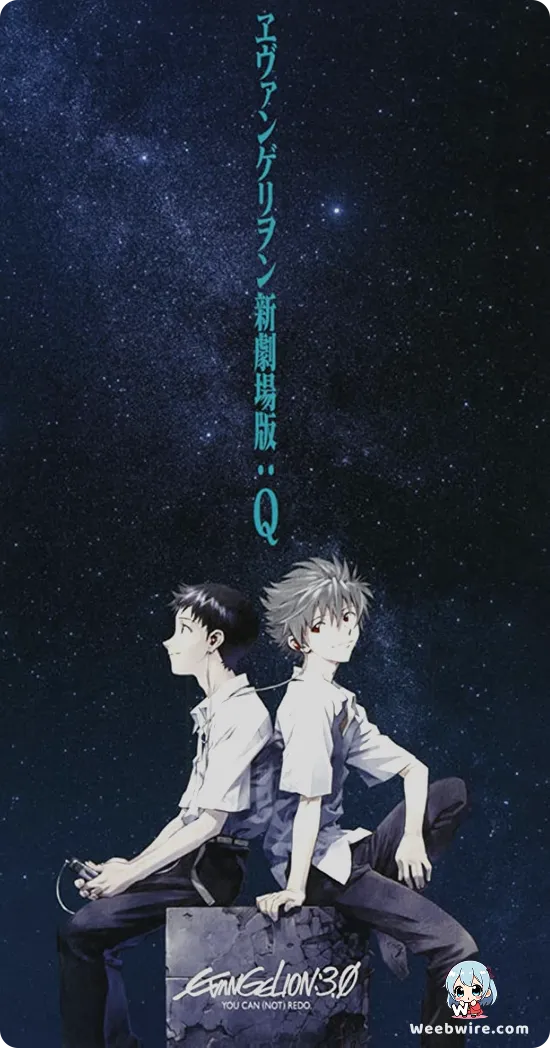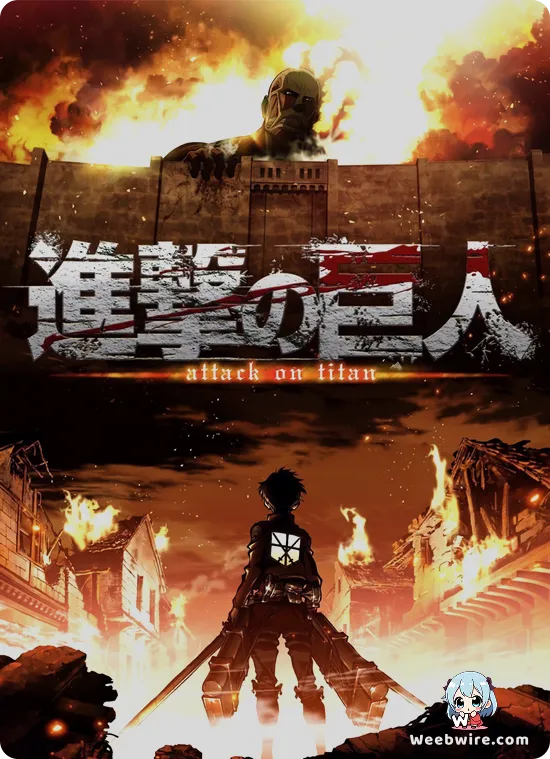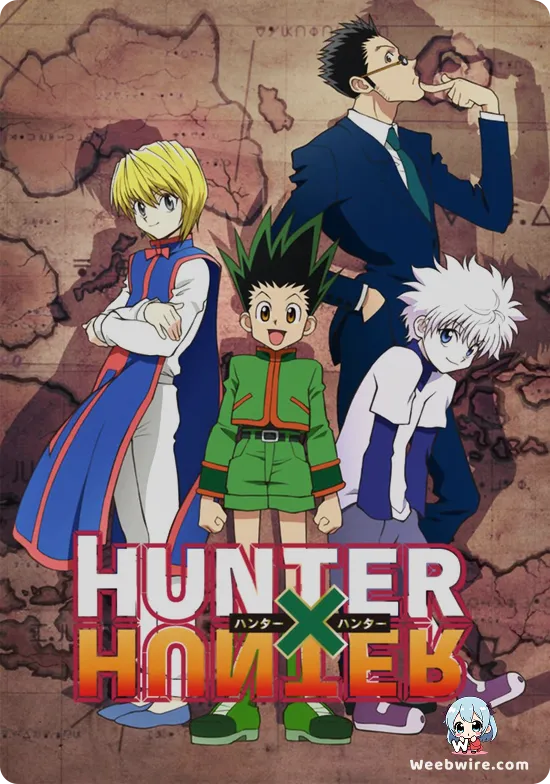

© Studio Khara
Evangelion: 3.0 You Can (Not) Redo
Overview
Evangelion: 3.0 You Can (Not) Redo is the third installment in the "Rebuild of Evangelion" tetralogy, a series of Japanese animated science fiction action films produced by Studio Khara, with Hideaki Anno serving as director and screenwriter. Released in 2012, this film significantly deviates from the original "Neon Genesis Evangelion" narrative, presenting a dramatically altered world. The story picks up fourteen years after the catastrophic Third Impact, an event that has left Earth desolate and transformed. Protagonist Shinji Ikari, a former Evangelion pilot, awakens from a long slumber to find himself physically unchanged but surrounded by a reality where former allies have become adversaries and the global landscape is unrecognizable. He is rescued within Evangelion Unit-01 by Misato Katsuragi, who now leads WILLE, an anti-NERV organization. WILLE is actively engaged in warfare against NERV, which has shifted its agenda to orchestrate a forced evolution of humanity and trigger another Impact, threatening all remaining life. Shinji, now bearing an explosive collar, struggles to comprehend the fractured allegiances and the motives of new and returning enigmatic pilots such as the aggressive Asuka Langley Shikinami, the skilled Mari Illustrious Makinami, and the mysterious Kaworu Nagisa, who offers an unexpected source of solace. The narrative deeply explores themes of psychological trauma, moral ambiguity, and existential despair, pushing the mecha genre into complex post-apocalyptic and metaphysical realms. It delves into the consequences of Shinji's past actions and the shattering of his relationships, offering a profound commentary on identity, responsibility, and the arduous struggle for humanity's survival amidst a world teetering on the brink. The film is characterized by its symbolic imagery, intense action sequences, and a persistent exploration of redemption versus despair.
Opinion
"Evangelion: 3.0 You Can (Not) Redo" represents a significant and polarizing entry within the "Rebuild of Evangelion" saga, showcasing Studio Khara's exceptional animation prowess and a daring approach to narrative construction. The visual presentation is a standout feature, with meticulously detailed mecha designs, fluid and impactful combat sequences, and stunningly rendered post-apocalyptic environments that effectively convey the devastation of the world. Character animation is expressive, enhancing the psychological depth of the cast. The voice acting, particularly by Megumi Ogata as Shinji Ikari and Akira Ishida as Kaworu Nagisa, delivers performances rich in emotional nuance, effectively portraying the characters' complex internal struggles and evolving relationships. Story pacing, however, is a point of contention; the film opts for a dense, fragmented narrative that assumes significant prior knowledge of the franchise, potentially alienating newcomers. This approach can make the initial viewing challenging, requiring close attention to piece together the drastic shifts in the world and character dynamics. Character development, especially for Shinji, focuses intensely on his isolation, guilt, and identity crisis, pushing him into a deeply vulnerable state that is both compelling and difficult to witness. The thematic depth explores humanity's evolution, the nature of responsibility, and the cyclical pattern of despair and hope, often through subtle symbolism and philosophical dialogue. While the film’s radical divergence from established timelines and its enigmatic plot developments may leave some viewers desiring more direct explanations, its artistic ambition and profound exploration of existential themes solidify its position as a critical, albeit demanding, piece in the Evangelion universe, adeptly setting the stage for its conclusion.
Characters
Misato Katsuragi
Voice: Kotono Mitsuishi
Kaworu Nagisa
Voice: Akira Ishida
Asuka Langley Shikinami
Voice: Yūko Miyamura
Shinji Ikari
Voice: Megumi Ogata
Mari Illustrious Makinami
Voice: Maaya Sakamoto
Rei Ayanami
Voice: Megumi Hayashibara
Credits
Studio
Studio Khara
Cover Art
Studio Khara Art Department
Publisher
Kadokawa Shoten
Producers
Studio Khara, Khara, Inc.
Episodes
Season 1
1 episodesInformation
Genres
Related Anime

Fullmetal Alchemist: Brotherhood

Haikyu!!

Attack on Titan

Hunter x Hunter Story, Characters, Revival News, & Similar Anime

Hajime no Ippo: The Fighting!
